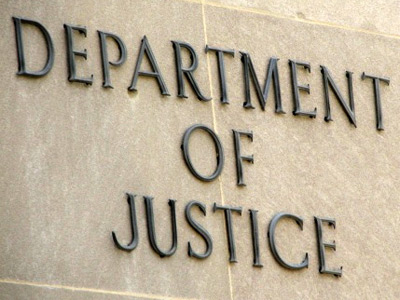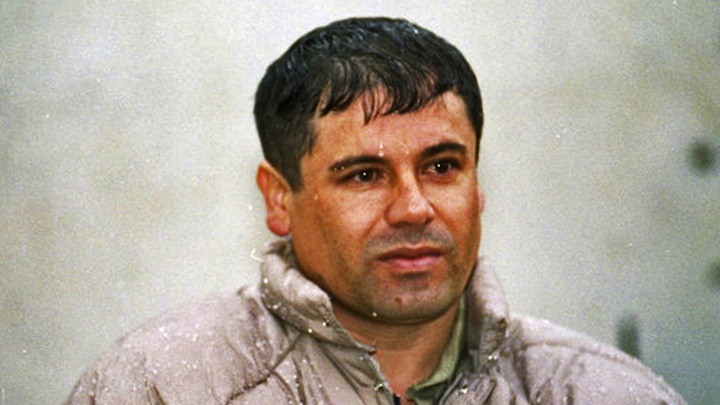By Ross Parker
ticklehthewire.com
The Supreme Court will hear oral arguments in four difficult criminal cases on the April docket. All without the incisive, biting and entertaining interrogation of Justice Scalia. But last month Justice Thomas asked his first question in more than a decade. That must have raised some eyebrows.
One of the highest profile cases of the term, McDonnell v. United States, will be among those argued. Bob McDonnell was the popular governor of Virginia, and his name had been mentioned as a Vice Presidential running mate. Probably not any more since his prosecution for bribery.

His financial problems led him and his wife to seek various loans and gifts valued at over $175,000 from a businessman who was promoting a dietary supplement under review by the FDA. The gifts included a $20,000 shopping spree by Mrs. McDonnell, a former Washington Redskins cheerleader. Not that I hold anything against former cheerleaders (some of my best friends…), but she does seem to be at the center of both the “quid” and the “quo” of this sordid affair.
The issue before the Court is whether the Hobbs Act felony of agreeing to take “official action” in exchange for something of value by exercising actual government power (i.e. bribery) was proven in the case, as opposed to merely providing routine political courtesies, benefits and access to others.
The evidence at trial included the following “official acts” by the governor, all around the time that the McDonnells were receiving their goodies: asking the Secretary of Health to send an aide to a meeting where Mrs. McDonnell and the businessman could pitch the product; attending a luncheon arranged by Mrs. McDonnell where the businessman gave two state medical schools $200,000 to research the product; sending an ambiguous email (at Mrs McDonnell’s request) to a staffer regarding the medical school’s lack of responsiveness; inviting the businessman to a reception for the “Health Care Leaders”; and finally suggesting a meeting to discuss whether the product could be included in the state employee health plan. Note the First Lady’s involvement. Cherchez la femme
None of these actions by the governor resulted in any specific benefit to the businessman. Nor did the governor make any request or order that a government official do anything other than exercise his/her independent judgment. McDonnell said that he was doing nothing more than helping a state business and extending political courtesies.
The Solicitor General argues that at least some of the actions amounted to personal benefits conferred in exchange for an agreement to influence government matters. But McDonnell’s supporters filed more than a dozen briefs which warn that the expansion of the statute to include this kind of conduct will create an ill-defined situation where aggressive federal prosecutors could criminalize what has been merely political custom.
Prediction: Reverse the conviction. This kind of activity by an elected official is a big part of why the 2016 Presidential campaign is the slugfest that it is. People are sick of this stuff. But that doesn’t make it criminal. Whether the Court finds: that the statute is unconstitutionally vague as providing insufficient guidance for ordinary politicians to know what activity crosses the line; Or that the trial court’s instructions were overly expansive; Or that the 4th Circuit’s interpretation of not requiring the “quo” to have a direct connection with the “quid” – the Justices will find a rationale to avoid the quicksand of defining criminal activity by politicians in the routine benefits they provide to their benefactors. I think.
Birchfield v. North Dakota and its two companion cases present the kind of questions and arguments that Justice Scalia would have loved. He could have put the attorneys for both sides in the hot seat. And his vote could have made the difference in the results.
The issue in the case is whether the state can make it a crime for a person to refuse to take a chemical test to detect the presence of alcohol in the blood (or breath) in a DUIL case without a search warrant.
Every state has a law which requires a motorist to consent to such a test or else face some consequences, such as suspension of a driver’s license or evidence of refusal admissible at trial. Thirteen states, including North Dakota and Minnesota, go a step further and make the refusal to consent, even without a warrant, a separate criminal offense.
Each side of the case has important policy considerations. The warrantless invasion of the body, e.g., blood tests, has long presented privacy issues. On the other hand drunk driving is a serious problem, and motor vehicles are subject to pervasive regulation.
Then, too, technological advances are a factor, as they have been in recent Supreme Court cases involving searches of cell phone data and heat emanations in houses. These same advances, however, make obtaining a search warrant by telephone and electronic means a quicker and more practical alternative to a paper search warrant.
The two cases could present a distinguishably different balance of these factors. The North Dakota case involves the implied consent to a blood sample whereas the Minnesota case arguably involves the lesser intrusion of a breathalyzer test.
Just as interesting as the result will be the potential bases that the Court could use to find an exception to the warrant requirement.
Prediction: The Court will uphold the constitutionality of the Minnesota statute. The North Dakota case will be a closer call, and Justice Scalia’s vote could have made the difference in finding a way to uphold the conviction.
In April’s third case, U. S. v. Bryant, the Court considers one of several recent cases involving questions on predicate crimes, either for an enhanced sentence or as a separate offense (such as for a habitual offender). 18 USC 117(a) makes it a federal crime to commit a domestic assault within “Indian country” if the person has two or more domestic violence convictions. Often these prior convictions are misdemeanors. The issue before the Court is whether these prior offenses can be uncounseled and still be valid predicates.
Michael Bryant, Jr. was a member of the Northern Cheyene tribe. He had more than 100 prior convictions in tribal court, including 5 misdemeanor assaults on a girlfriend for which he was incarcerated for short periods. He was indigent during these prosecutions and did not have appointed counsel since none is required in tribal courts.
During 2011 he repeatedly assaulted two different girlfriends and was prosecuted under Section 117(a) as a habitual offender. He was convicted by his guilty plea, sentenced to 46 months, and his conviction was affirmed by the 9th Circuit.
Prior convictions obtained in violation of the 6th Amendment right to counsel cannot be used as an element in a habitual offender prosecution to enhance a sentence. However, not all uncounseled convictions are unconstitutional. For example, the absence of counsel for an indigent convicted of a misdemeanor not resulting in a jail sentence is not infirm. Likewise, counsel need not be appointed in a tribal court prosecution of a misdemeanor, even if a jail sentence was imposed.
The circuits are split on the issue of whether an uncounseled misdemeanor can serve as an element of an offense for which the defendant such as in this case was convicted. The 8th Circuit says “no” and the 8th and 10 Circuit say “yes.”
Criminal prosecutions in tribal court are based on the independent sovereignty of reservations, to which the Constitution does not apply. The criminal justice system in tribal courts, however, is subject to Congress’s many guarantees in the form of legislation, such as due process. Unlike the 6th Amendment) those protections do not include the right to appointed counsel (at least in custody cases) in misdemeanor cases.
The case poses the question of whether Congress’s judgment that tribal court convictions are reliable is so unreasonable as to violate due process of law. The government points out that the rationale of the Constitutional invalidity of uncounseled misdemeanor convictions even in state and federal courts raises a question about the Constitutional reliability of the sentence not of the conviction itself.
The Supreme Court has, in a variety of related contexts, upheld the use of otherwise valid uncounseled misdemeanor convictions in subsequent prosecutions. Tribal court convictions in these circumstances do not violate the Constitution and therefore appear to be yet another example of their valid use in later cases.
Prediction: Reverse and reinstate the conviction. This is another case where Justice Scalia’s vote could have mattered. In disallowing these prior convictions in habitual prosecutions, the 9th Circuit has eliminated an important statute protecting Indian women and children from an epidemic of domestic violence on reservations, even though the convictions were valid and there had been no Constitutional violation. This is a policy matter for Congress not for judicial legislation of what judges think the law should be. Guys like Bryant just like to beat women, and dozens of tribal misdemeanors will have no effect on them. That was the entirely reasonable purpose of the statute.
The fourth case scheduled for April arguments, Mathis v. United States, raises yet another predicate offense issue, this time for the troublesome Armed Career Criminal Act (ACCA) predicate offense of burglary. The problem is that federal, state, and common law burglary can mean different things and thus raise a question as to whether the prior convictions match “generic” burglary (generally unlawful entry into a building) as intended by ACCA. In determining whether generic burglary is satisfied by the prior conviction, courts typically use a “categorical” approach, that is, if the elements of the potential predicate offense are the same as burglary under the ACCA, the predicate is satisfactory.
When the comparison of the two offenses does not match, the court may nevertheless use a “modified categorical approach” to test the adequacy of the prior convictions. If the burglary statute in the prior offense presents alternative activities which are criminal with different elements, and if the statue is “divisible,” an examination of the precise prior offense of conviction could still satisfy the predicate requirement.
Mathis was a five-time convicted Iowa burglar who was convicted of being a felon in possession of a firearm. He was therefore a candidate for the enhanced sentence of the ACCA. His prior convictions were under the Iowa burglary statute, which was broader than generic burglary because it included alternatives not present in the latter. For example the statute included unlawful entry into a boat or vehicle. Were these alternative scenarios multiple offenses with different elements (and thus potentially includable as a predicate), or merely alternative fact examples of different means of satisfying the statute (and thus indivisible and if different from generic burglary not includable as ACCA burglary)?
This comparison is accomplished by examining the charging document, pre-sentence report, and /or jury instructions to determine if the offense had the same elements as generic burglary. In Mathis’s case the prior offenses were for unlawful entry of a house, storage shed and garage. The trial court held that this matched the ACCA requirement and an enhanced sentence was imposed. The 8th Circuit affirmed.
On appeal the defendant argues that the statute was not divisible and was overbroad. The statute’s alternatives were merely different means of satisfying the place requirement.
There are disagreements and confusion among the Circuits on this issue, which is understandable considering the scores of different descriptions of burglary in the United States. Clarifying this whole area would be a great service.
Prediction: Affirm the ACCA enhanced sentence. There are some slippery concepts and nuances in this case. However, since the defendant’s prior convictions fit neatly within ACCA generic burglary, it seems illogical to deny their effect as predicate offenses.
The 2015-2016 Court term is in the homestretch. There could very well be some 4-4 decisions which would allow the lower court judgment to stand. Anyone foolish enough to predict the Supreme Court’s decisions in the 2016-2017 term need only apply to ticklethewire.com. I have learned my lesson.




